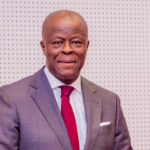The Federal Government has disbursed ₦1.322 billion to bolster nano businesses across the 27 local government areas of Borno State.
The Borno State Governor, Babagana Zulum, disclosed this on Friday at Federal Government town hall meeting on loan and grant scheme in Maiduguri.
The initiative, under the Presidential Conditional Grant Scheme (PCGS), has directly benefited 26,540 small-scale entrepreneurs, to cushion the effect of fuel subsidy removal in the state.
Zulum, represented by Dr. Abubakar Muhammed, Permanent Secretary Establishment and Service Matters, said that the grants, was facilitated by the Bank of Industry in collaboration with the Borno State Government.
He said that the scheme aimed to empower traders, artisans, ICT operators, food service providers, and transporters with ₦50,000 each to enhance their operations.
He explained that the disbursement in Borno State was a critical component of the Federal Government’s commitment to supporting local economies and vulnerable groups.
“With a total of 810,945 beneficiaries nationwide, the program ensures that Borno’s entrepreneurs receive the necessary support to thrive in challenging economic times,” he said.
According to him, the PCGS initiative in Borno is expected to boost small businesses, create employment opportunities, and contribute to the overall economic recovery of the state, which continues to rebuild in the aftermath of insurgency and other challenges.
Mr Muktar Musa, State Manager of the Banki of Industry Maiduguri, said the Federal Government had disbursed over ₦40bn from the approved ₦50bn to support nano businesses across the 774 local government areas in Nigeria.
Musa said that the scheme, introduced as part of interventions following the removal of fuel subsidy, targets one million beneficiaries.
The PCGS, implemented in collaboration with state governments and facilitated by the Bank of Industry, aims to uplift traders, ICT operators, food service providers, transporters, and artisans with ₦50,000 grant per beneficiary.
He noted that North West states received the highest disbursement of ₦10bn, followed by North Central with ₦6.6bn, and North East with ₦5.9bn. South East benefitted from ₦4.8bn, while other zones are awaiting final reports.
He said that a breakdown of the disbursements revealed that 70% of the beneficiaries were women and youths, with a deliberate focus on empowering these demographics.
“Additionally, 10% of the funds have gone to persons with disabilities, 5% to senior citizens (primarily pensioners), and 15% to other demographic groups, ensuring an inclusive approach.
“As of now, 810,945 beneficiaries have been supported across the country, leaving approximately ₦10 billion to be disbursed.
“This intervention, part of a nationwide initiative to cushion the effects of fuel subsidy removal, has benefitted 26,540 small-scale entrepreneurs across the state’s 27 local government areas.
“It also underscores the Federal Government’s commitment to supporting local economies and vulnerable groups in the aftermath of subsidy removal.
“In the South-East region, 96,000 beneficiaries across 95 local governments have received grants, while the South-South recorded over 117,000 beneficiaries in 123 local governments. The South-West saw over 146,000 beneficiaries across 137 local governments.
“In Borno State, the initiative has provided critical support to various sectors, including traders, artisans, ICT operators, food service providers, and transporters.
“Beneficiaries received grants of ₦50,000 each, with the disbursements facilitated by the Bank of Industry in collaboration with state governments.”
He noted that the PCGS was expected to bolster economic activities in targeted sectors, cushioning nano businesses and vulnerable groups in the aftermath of the subsidy removal.
According to him, the beneficiaries were selected based on criteria such as possession of a BVN, NIN, and evidence of business premises.

 Join Daily Trust WhatsApp Community For Quick Access To News and Happenings Around You.
Join Daily Trust WhatsApp Community For Quick Access To News and Happenings Around You.


